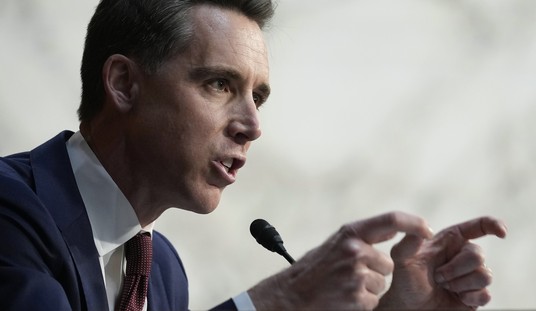President Obama’s point person on health care isn’t his point person on health care after all. These days, wherever you’d expect to see Kathleen Sebelius – the respected former Governor of Kansas and newly appointed Health and Human Services Secretary – you’ll probably see the forty-year old Peter Orszag instead. If you’re starting to wonder why the President doesn’t sound like the Barack Obama you remember, it’s because he’s starting to sound almost exactly like Mr. Orszag, the President’s budget director.
Mr. Orszag is in many ways the father of the strange contradiction within the President’s health agenda. President Obama wants to expand government health care and increase government health regulation. At the same time, the White House hopes to cut trillions in future government health costs – or “bend the curve,” to use Mr. Orszag’s most quotable phrase. The President believes in this impossible agenda because he believes in Mr. Orszag, who spent two years as the highly regarded Director of the Congressional Budget Office.

Mr. Orszag is a proponent of the “game changer” – a big idea that will result in big savings. “Yes, we can” has become “yes, Washington can.” Take the latest government-centered policy solution touted by the White House. It’s called “IMAC,” or the Independent Medicare Advisory Commission, which will have the authority to ration new drugs, tests, and technologies. IMAC will be a new Washington bureaucracy with an “independent” mandate, founded on the fiction that an expensive treatment must be by definition a waste of money.
The Democrats insist they don’t want British health care. We’ve seen this approach before – as it turns out, in Britain, which has employed the IMAC philosophy for more than a decade. There, the Orwellian super-committee is called NICE, the National Institute for Health and Clinical Effectiveness. Courts and patient petitions have forced NICE to repeatedly reconsider its decisions to reject treatments. NICE spent two years restricting a drug to treat blindness arguing that patients could get by with only one good eye. NICE rejected cancer drugs even after certifying their effectiveness solely because they were too expensive.
Recommended
While Democrats argue they don’t want Canadian health care, Canada’s counterpart to IMAC is the secretive Common Drug Review, or CDR. The CDR has rejected several orphan drugs without public debate, ignoring the fact that these drugs are often the best or even the only treatment for certain diseases.
While Mr. Orszag believes a health politburo can solve the cost-inflation problem, this strategy has failed elsewhere. Britain’s annual health inflation rate was 7% over general inflation for much of this decade. Despite drug price controls and the CDR’s draconian decisions, Canada’s health-care system faces cost inflation rates of 5 - 7%. The United States considers adopting a “game changer” that failed patients and taxpayers elsewhere.
It’s not as though Mr. Orszag isn’t smart or sincere. He’s brilliant and principled. But ideology is the driver here. The Administration’s solution to the rising-cost problem: bring federal budget decisions and a doctor’s treatment recommendations as close together as is politically possible.
Indeed, Washington isn’t simply their solution to the question of, say, reducing drug costs. It’s their solution to everything: Private insurance premiums are too high, so the solution is public insurance; thanks to state-based insurance markets and regulations, local insurance markets aren’t competitive enough, so the preferred Orszag solution is a federally-managed insurance market – to simulate what a market would do if it were actually allowed to exist.
The problem with that philosophy is best seen in a favorite talking point of Mr. Orszag’s – coincidentally a favorite talking point of the President’s. Both rightly point to the Cleveland Clinic and the Mayo Clinic as models of efficient, quality care. The President even visited Cleveland recently to emphasize that point. Left unsaid is the fact that innovative doctors in the American heartland founded and built both organizations from the ground up, not the top down. Neither Mayo nor the Cleveland Clinic came about as the result of a federal insurance company, a federal health exchange, or the work of a federal rationing committee, yet these are the policies that dominate the ObamaCare package.
Peter Orszag doesn’t seem like the type who would enjoy standing in a hospital room to get between a doctor and a patient. But he’s convinced the President to support health-care policies that will have exactly the same effect.

























Join the conversation as a VIP Member